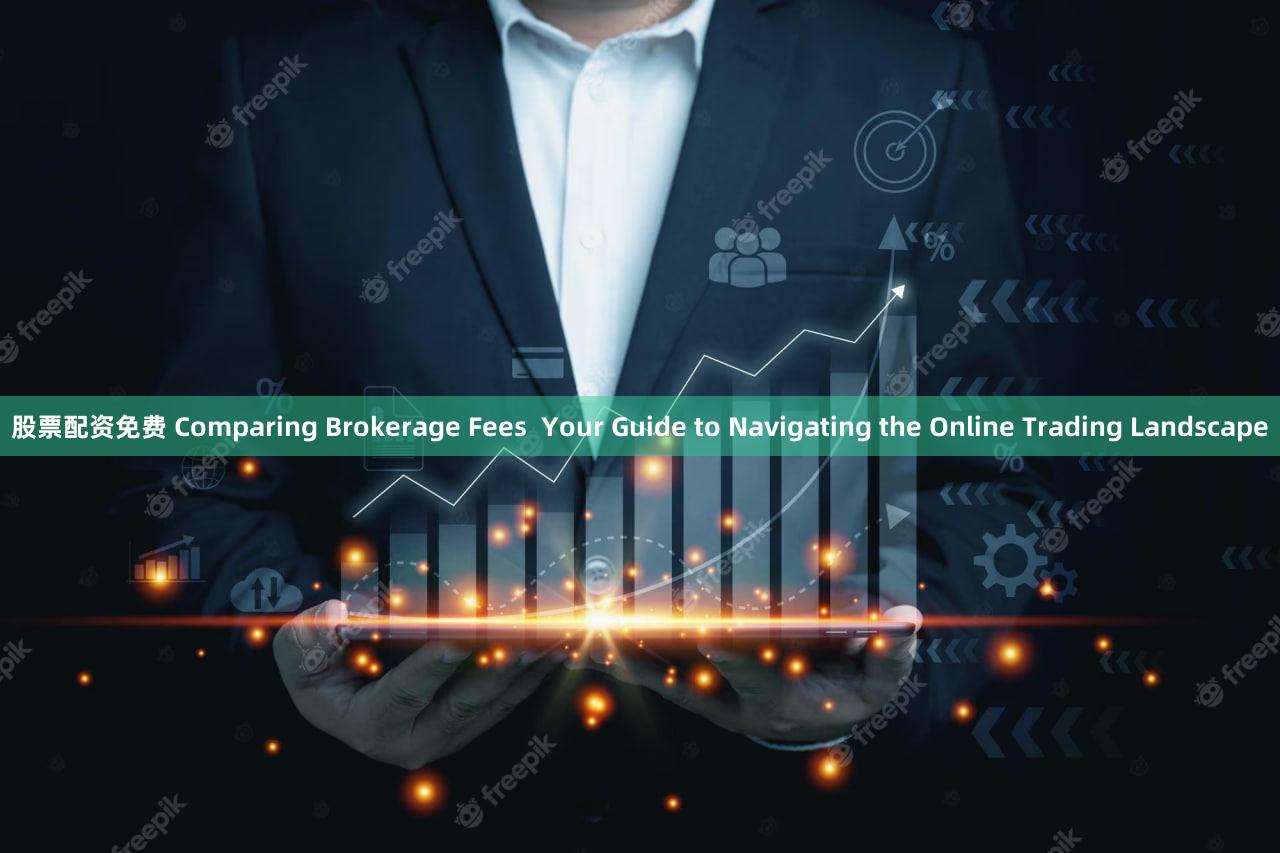
Comparing Brokerage Fees: Your Guide to Navigating the Online Trading Landscape
Meta Description: Learn how to effectively compare brokerage fees on different platforms, saving you money and maximizing your investment returns. This comprehensive guide provides expert insights, tips, and tricks for savvy investors.
Headline: Don't Get Ripped Off! Mastering Brokerage Fees for Maximum Profit
Choosing the right online brokerage platform is like choosing the right car – you need to consider more than just the flashy exterior. Sure, a sleek interface and fancy charting tools are nice, but the real engine of success, especially in the long run, is understanding and comparing brokerage fees. This is where many investors stumble. They get caught up in the marketing hype, lured by promises of "low fees" without truly understanding what those fees entail, and how they'll impact their bottom line. Let's face it, even small differences in fees can eat into your profits, especially when you're making frequent trades or investing significant sums. Imagine this: you're finally ready to take the plunge into the stock market, excited about your investment strategy. You meticulously research stocks, develop a solid portfolio, and then… bam! You're hit with unexpected brokerage fees that significantly reduce your returns. That's a gut punch no investor wants! This isn't just about numbers on a spreadsheet; it's about protecting your hard-earned money and ensuring your investment journey is as smooth and profitable as possible. This guide will equip you with the knowledge and strategies to navigate the complex world of brokerage fees, so you can confidently choose the platform that aligns perfectly with your trading style and financial goals. We’ll dive deep into the nuances of fee structures, uncover hidden costs, and provide you with a practical framework for making informed comparisons, ensuring you’re not leaving money on the table. Ready to become a fee-savvy investor? Let's get started!
Understanding Brokerage Fee Structures: The Nitty-Gritty
Before we delve into comparing platforms, it's crucial to understand the different types of fees you might encounter. Not all brokers are created equal, and their fee structures can be surprisingly complex. Knowing what to look for is half the battle.
Common Fee Types:
- Commission Fees: These are per-trade charges, typically levied for buying or selling stocks, ETFs, or options. This is often the most obvious fee, but it's not the only one.
- Transaction Fees: These apply to specific types of trades, such as options contracts or certain international transactions.
- Regulatory Fees: These are fees passed on by exchanges and regulatory bodies like the SEC. These are usually unavoidable.
- Account Maintenance Fees: Some brokers charge a monthly or annual fee simply for maintaining your account. This is a big red flag – avoid these if possible!
- Inactivity Fees: If you don't trade for a certain period, some brokers might charge you a fee for the privilege of keeping your money with them.
- Withdrawal Fees: Fees charged for transferring funds out of your brokerage account.
- Data Fees: Some platforms charge for real-time market data or advanced charting tools.
- Margin Interest: If you're using margin (borrowing money to invest), you'll pay interest on the borrowed amount.
The Importance of Transparency: A reputable broker will clearly outline all its fees in its fee schedule. Don't be afraid to contact customer support if anything is unclear – a lack of transparency is a major red flag.
Comparing Platforms: A Practical Approach
Now that you understand the different types of fees, let's look at how to effectively compare them across various platforms. The key is to go beyond just comparing headline commission rates. Consider the following:
1. Calculate Your Total Costs: Don't just look at the commission per trade. Consider your typical trading volume, the types of assets you trade, and the frequency of your trades. Estimate your annual brokerage fees based on your trading activity.
2. Consider the "Hidden" Fees: Pay close attention to the fine print. Many brokers have minimum account balances, inactivity fees, or other charges that can add up quickly.
3. Compare Across Asset Classes: Are you primarily trading stocks, options, ETFs, or bonds? Some brokers offer cheaper commissions for certain asset classes.
4. Factor in Non-Fee Aspects: While fees are crucial, don't ignore other aspects of the platform, such as research tools, customer service, trading platform usability, and investment options available. A slightly pricier broker might be worth it if it offers significantly better features and support.
5. Use Fee Calculators: Many brokerage websites offer fee calculators that let you input your trading activity and get an estimate of your annual costs. This can be a great time-saver.
6. Read Reviews: Don't just rely on the broker's marketing materials. Read independent reviews from other investors to get a sense of their real-world experiences with fees and the platform in general.
专业配资平台Example Comparison:
Let's say you're comparing Broker A and Broker B. Broker A charges $5 per trade, while Broker B charges $0 per trade but has a $10 monthly account maintenance fee. If you trade 5 times a month, Broker A costs you $25, and Broker B costs you $120 ($10 x 12 months). Clearly, Broker A is the more cost-effective option in this scenario – but the scenario changes if you trade less often.
Beyond the Numbers: Choosing the Right Fit
Picking a brokerage platform isn’t just a numbers game. It’s about finding a platform that aligns with your individual needs and preferences. Consider these factors:
- Your Trading Style: Are you a day trader, swing trader, or long-term investor? Your trading frequency will significantly impact your overall brokerage fees.
- Your Investment Goals: What are you trying to achieve with your investments? This will influence the types of assets you trade and the features you need from your brokerage platform.
- Your Technological Savvy: Some platforms have more user-friendly interfaces than others. Choose a platform that matches your comfort level with technology.
- Customer Support: Reliable customer support is essential, especially when you encounter problems or have questions.
Frequently Asked Questions (FAQs)
Q1: Are discount brokers always the best option?
A1: Not necessarily. While discount brokers often have lower commissions, they might lack advanced research tools or excellent customer support. Weigh the trade-offs carefully.
Q2: How often should I review my brokerage fees?
A2: At least annually. Brokers can change their fee structures, and your trading activity may also change, making a reassessment essential.
Q3: What should I do if I find hidden fees?
A3: Contact customer support immediately and inquire about the fees. If you're unhappy with the explanation or the fees themselves, consider switching brokers.
Q4: Can I negotiate brokerage fees?
A4: This is unlikely for retail investors, but you can always try to negotiate if you have a large account balance or intend to significantly increase your trading volume.
Q5: Are there any free brokerage accounts?
A5: Yes, some brokers offer commission-free trading for stocks and ETFs, but they might generate revenue through other means, such as data fees or payment for order flow.
Q6: What's the best way to minimize my brokerage fees?
A6: Choose a brokerage with a fee structure that aligns with your trading style and frequency. Consider consolidating your trades to reduce the number of transactions and, if possible, negotiate fees if using a significant amount of capital.
Conclusion: Empowering Your Investment Journey
Mastering the art of comparing brokerage fees is a crucial skill for any investor. By understanding the various fee structures, performing thorough comparisons, and considering your individual needs, you can significantly reduce your costs and maximize your investment returns. Remember, it’s not just about finding the cheapest broker; it’s about finding the right fit for your investment journey. So, take your time, do your research, and choose wisely! Your future self will thank you for it.
文章为作者独立观点,不代表财盛证券观点






